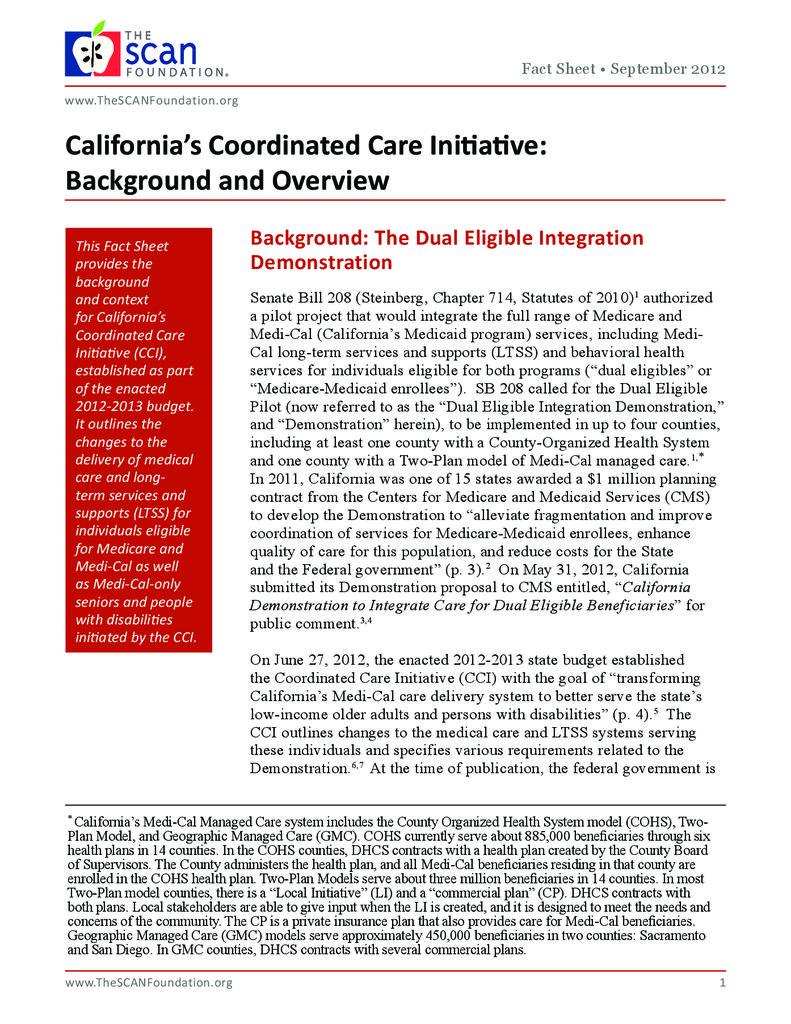California’s Coordinated Care Initiative: Background and Overview
summary
This fact sheet provides the background and context for California’s Coordinated Care Initiative (CCI), established as part of the enacted 2012-2013 budget. It outlines the changes to the delivery of medical care and longterm services and supports (LTSS) for individuals eligible for Medicare and Medi-Cal as well as Medi-Cal-only seniors and people with disabilities initiated by the CCI.
Date Updated: 09/10/2012Senate Bill 208 (Steinberg, Chapter 714, Statutes of 2010) authorized a pilot project that would integrate the full range of Medicare and Medi-Cal (California’s Medicaid program) services, including Medi-Cal long-term services and supports (LTSS) and behavioral health services for individuals eligible for both programs (“dual eligibles” or “Medicare-Medicaid enrollees”). SB 208 called for the Dual Eligible Pilot (now referred to as the “Dual Eligible Integration Demonstration,” and “Demonstration” herein), to be implemented in up to four counties, including at least one county with a County-Organized Health System and one county with a Two-Plan model of Medi-Cal managed care.
Continue Reading
The California Medicaid Research Institute (CAMRI) developed an integrated and longitudinal database containing Medi-Cal and Medicare claims and assessment data of LTSS recipients in California in 2008. CAMRI’s integrated database provides a unique opportunity to look at characteristics and program spending across the entire care continuum for beneficiaries with LTSS needs within Medi-Cal and for dual eligibles across Medicare and Medi-Cal. This report focuses on LTSS use and spending in the eight duals demonstration counties.
On March 27, 2013, the State of California and the Centers for Medicare and Medicaid Services (CMS) formalized a Memorandum of Understanding (MOU) to establish a Federal-State partnership to implement the Dual Eligibles Integration Demonstration, also referred to as Cal MediConnect. This Fact Sheet provides background information about Cal MediConnect and summarizes the key points of the MOU.
This report describes nursing home stays of two of California’s most vulnerable populations: those who are dually eligible for Medicare and Medi-Cal and Medi-Cal only beneficiaries. Findings suggest the need for improved coordination between health care and long-term services and supports systems in order to more efficiently and effectively provide services to meet people’s needs.


